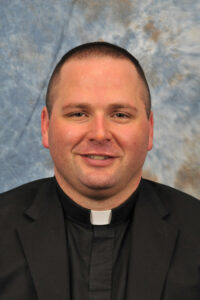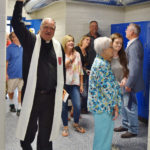When someone enters seminary or a religious community, this person will ultimately have many people involved in their formation or the process through which they journey towards a vocation as a priest, religious sister or brother. Usually, professors, instructors, mentors, spiritual directors, superiors, pastors and many other people are involved in a person’s formation for priesthood or religious life.
Many people are involved in the formation process because people presenting themselves for religious life or priesthood usually have to accomplish academic, spiritual, pastoral and human goals over a course of several years before they reach final profession as a religious or a priest. These goals are important because they help women and men to imitate Jesus Christ and prepare them for their special roles in the Catholic Church.

Usually, one or two people in a seminarian’s life or a religious candidate’s life help them to navigate the entire formation process; this position is the “formator.” The person in this role is supposed to help, support and advocate on behalf of a seminarian or religious candidate as they move through their formation for the priesthood or religious life.
The formator makes sure certain milestones are met, that seminarians or religious candidates are getting everything they need, and will make recommendations at the end of every formation year about what should happen next in a person’s formation. Formators are so important in the life of the seminarian or religious candidate because they help to ensure that the men and women called by the Lord for service in the church hear his voice and know where he is calling them to go.
As many of you know, the journey to the priesthood or religious life begins with a person recognizing that God might be calling him or her to service in the church as a priest or a religious sister or brother. This call by the Lord does not end once someone enters formation. The call to service in the church by the Lord should be clearer and more resolute throughout the formation process.
Yes, the role of a formator is important, but nothing is more important than a person discerning God’s call in his or her life. Therefore, the true formator in any person’s life should be the Holy Spirit. By cooperating with the life of the Spirit, a person can respond to God’s call where they will find peace in their lives. However, we all need help in making sure that we respond to God’s will in our lives, especially as we discern whether we are called to service in the church.
In the end, it takes many people to help those called to priesthood and religious life to learn where God is calling them to service in the church. It is my belief that all people in the church need to pray for those individuals selected by the church to serve as formators at seminaries and houses of formation around the world. They truly play an important role in the lives of future priests, religious sisters and brothers. Formators’ service to the church is something that I hope no one ever takes for granted.
(Father Jacob Greiner is pastor of Our Lady of Victory Parish and JFK Catholic School in Davenport and director of seminarians for the Diocese of Davenport.)











